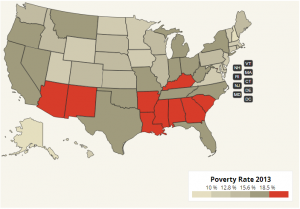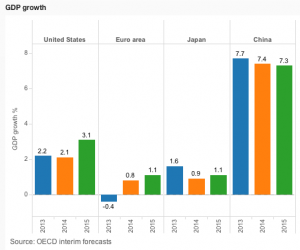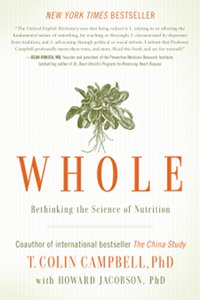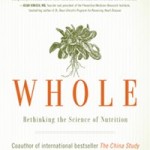Posted by Elena del Valle on September 30, 2014

Talkpoverty Map – click to enlarge
Map: TalkPoverty.org
Rising stocks lifted household wealth 1.7 percent, according to the Federal Reserve, to $81.5 trillion between April and June of this year (see Household Net Worth Has Rebounded, The New York Times September 19, 2014 and Americans’ net worth climbs to record high, Associated Press, September 18, 2014). The numbers don’t account for inflation. They were adjusted for the change in the Consumer Price Index.
Household wealth reached a record high, 4 percent above the 2007 figures. The improvement in household wealth is especially evident among the wealthiest households. While the net worth of some Americans reached a record high poverty remains elevated, and there was an increase in new debt, mostly from auto and student loans.
Using data released by the U.S. Census Bureau, TalkPoverty.org, a project of the Center for American Progress’s Half in Ten Education Fund, recently released an interactive state by state map with congressional district level poverty data for 2013 designed to showcase the impact of poverty across the nation. It can be found at http://talkpoverty.org/poverty/
The tool relies on seven key indicators: the total poverty rate; the women in poverty rate; the child poverty rate; and the poverty rate among African Americans, Asian Americans, Native Americans, and Latinos. It also includes a ranking of states’ total poverty rates and child poverty rates.

Greg Kaufmann, editor, Talkpoverty.org
“We haven’t made nearly enough progress to reduce poverty nationwide, and both low- and middle-income families are still struggling to recover from the Great Recession,” said Greg Kaufmann, editor of TalkPoverty.org and senior fellow with the Half in Ten Education Fund, in a press release. “At the state and local levels, we see the disparate impact of poverty, particularly among women and communities of color. The latest round of Census data sheds light on the reality of poverty in our own backyards, and should be a wake-up call to policymakers that we can and must do more to drastically reduce poverty.”
The Center for American Progress suggestions to reduce poverty, boost economic security, and expand the middle class include raising the minimum wage; increasing the Earned Income Tax Credit, or EITC, for childless workers; supporting equal pay; providing paid leave and paid sick days; investing in affordable, high-quality child care and early education; and expanding Medicaid.
Launched in May 2014, TalkPoverty.org is an online hub dedicated to “providing in-depth analysis and educational resources about poverty in America and what we can do at the local, state, and federal level to dramatically reduce it.”
Posted by Elena del Valle on September 24, 2014

Rintaro Tamaki, deputy secretary general, OECD
Photo, graphic: OECD/Michael Dean
Most major advanced and emerging economies are experiencing a moderate if uneven expansion across regions; and growth is weak in the euro area, which may suffer prolonged stagnation unless something happens to boost demand, according to the Organisation for Economic Co-operation and Development’s (OECD) most recent Interim Economic Assessment.
In the United States, the United Kingdom and Canada, the researchers believe growth will be cause unemployment to drop. In Japan, where unemployment is already low, the economy may grow broadly. They believe China will to continue experiencing high yet more sustainable growth rates while India and Brazil rebound from the recession.
“The global economy is expanding unevenly, and at only a moderate rate,” said Rintaro Tamaki, deputy secretary general and acting chief economist, OECD, at the Interim Economic Assessment in Paris, France, according to the OECD website. “Trade growth therefore remains sluggish and labour market conditions in the main advanced economies are improving only gradually, with far too many people still unable to find good jobs worldwide. The continued failure to generate strong, balanced and inclusive growth underlines the urgency of undertaking ambitious reforms.”

OECD Projected GDP Growth 2014-15 – click to enlarge
The OECD projects that in 2014, the United States will grow by 2.1 percent, and by 3.1 per cent in 2015; the United Kingdom will grow by 3.1 percent in 2014 and 2.8 percent in 2015; and Canada will grow 2.3 percent this year and 2.7 percent in 2015.
They estimate Japan will grow by 0.9 percent in 2014 and 1.1 percent in 2015; the euro area will grow at a 0.8 percent rate in 2014 and a 1.1 percent pace in 2015.
Growth prospects differ widely among the major euro area economies. The researchers forecast Germany will grow by 1.5 percent in 2014 and 2015, France by 0.4 percent in 2014 and 1 percent in 2015, while Italy will see a -0.4 percent drop in 2014 and a gain of just 0.1 percent in 2015.
Posted by Elena del Valle on September 19, 2014

Whole: Rethinking the Science of Nutrition
Photo: BenBella Books
T. Colin Campbell, Ph.D. has spent a lifetime studying nutrition, and Howard Jacobson, Ph.D. is a health educator and ecological gardener. They believe a whole food plant based diet without added fat, salt, or refined carbohydrates (such as sugar and white flour) is the essential foundation for a healthy life. In Whole Rethinking the Science of Nutrition (BenBella Books, $16.95) they explore the evidence to support their conclusions, including their belief that people’s eating habits haven’t changed despite the availability of information about nutrition to support their arguments.
Whole follows on the heels of the publication of The China Study (see Health, nutrition experts examine comprehensive China nutrition study), a previous book authored by Campbell and his son, which addressed similar issues and conclusions about nutrition. The 328-page softcover book is divided into 19 chapters and four main parts: Enslaved by the System, Paradigm As Prison, Subtle Power and Its Wielders, and Final Thoughts.
The authors examine the concepts of whole versus reductionist biology, where whole biology views the body as more than the sum of its parts while reductionist biology focuses on the individual organs or aspects of the human anatomy. They are convinced reductionism is the primary view today and part of the reason society, medicine and social policy favor reductionist nutrition.
They propose that readers change the way they view nutrition, medicine and health, taking into account the complexity of the human body and expanding their views to encompass reductionist and wholist approaches. The reasons society clings to old reductionist approaches to eating, they say, relate to a long standing belief in the healthy nature of animal proteins, the common view that the body is made up of a set of diverse and separate parts, and a profit oriented reductionist system.

Click to buy Whole
Comments:
Filed Under: Books
Posted by Elena del Valle on September 8, 2014

Amiel Handelsman, executive coach and author, Practice Greatness
Photo: Amiel Handelsman
A podcast interview with Amiel Handelsman, an executive coach, is available in the Podcast Section of Hispanic Marketing & Public Relations, HispanicMPR.com. During the podcast, he discusses how to practice great leadership with Elena del Valle, host of the HispanicMPR.com podcast.
Amiel, a change consultant based in Portland, Oregon, is the author of the 2014 book Practice Greatness: Escape Small Thinking, Listen Like A Master, And Lead With Your Best. He has two decades of experience helping leaders and organizations rise to the challenge of complex change.
To listen to the interview, scroll down until you see “Podcast” on the right hand side, then select “HMPR Amiel Handelsman” and click on the play button below or download the MP3 file to your iPod or MP3 player to listen on the go, in your car or at home. To download it, click on the arrow of the recording you wish to copy and save it to disk. The podcast will remain listed in the September 2014 section of the podcast archive.
















